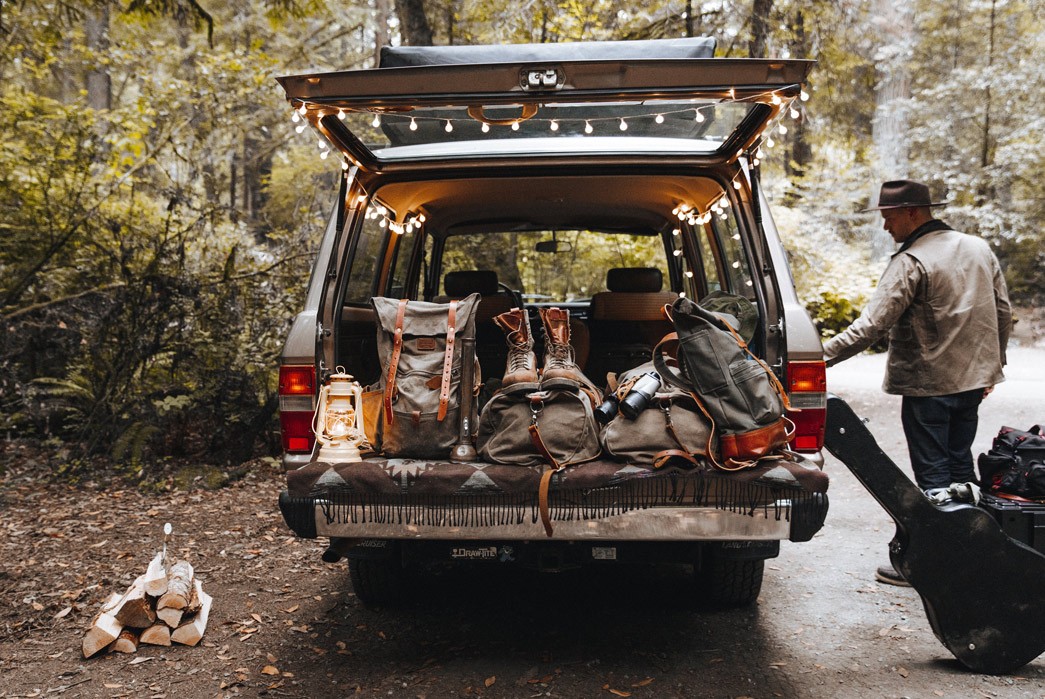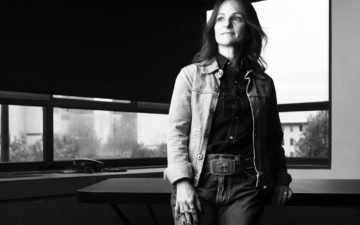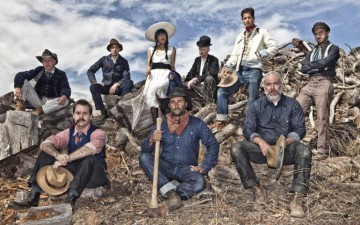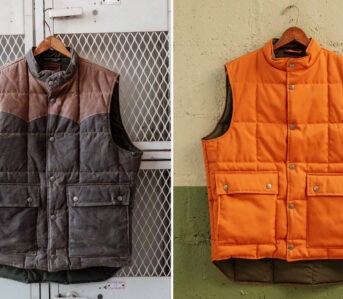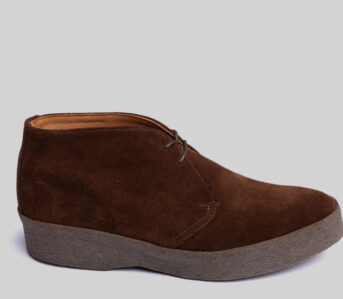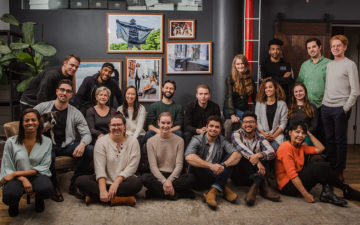Nestled in the heart of Columbia, Tennessee, is a man whose laid-back demeanor might deceive you at first glance. Tyler Axtell is an unassuming guy, but behind the California beach hair and well-groomed mustache is a small business mogul and a passionate advocate dedicated to preserving the traditional artisanal craftsmanship methods of yesteryear.
He’s the founder of Bradley Mountain, a US-based lifestyle brand dedicated to making hardwearing, aesthetically pleasing goods from backpacks to candles. We sat down to chat with him as he settled into his new home in Tennessee with his wife and co-owner of Bradley Mountain, as well as his adorable daughter who made a few impromptu cameos during the interview.
From bear attack-proof bags and Swedish Boy Scouts to coffee, candles, and Bradley Mountain RV parks, we caught up with the man behind the [Bradley] mountain to chat all things leather and canvas.
William Reynolds: Tyler, great to meet you. Thanks for taking the time to speak with us. Perhaps you could start by walking us through Bradley Mountain; where it started and the inspiration behind it.
Tyler Axtell: I started Bradley Mountain in 2012 out of a passion for handcrafted goods. I started leatherworking just as a hobby, and then I wanted to make bags for myself for travel. I was actually taking a trip to Switzerland with my brother, and I wanted to just take one bag for the entire trip. It was a two-week trip. Instead of buying one, I just decided to make it, which is how I designed the Wilder. It’s kinda what we’re most known for. It has an old-world feel to it and it’s modular, so you can add things to it, strap your boots to the outside, and your jacket to the side of it. The idea is that it has an old backpacking “feel”, but it’s urban and modern as well.
I just fell in love with the textures of leather and waxed canvas. I didn’t really see much of it as a kid growing up in Southern California, you know. I fell in love with working with the materials. As I made more things, co-workers and college friends wanted more. They were like, “Where can we buy it?”, so I started an online store. Fast-forward and it’s grown from there.
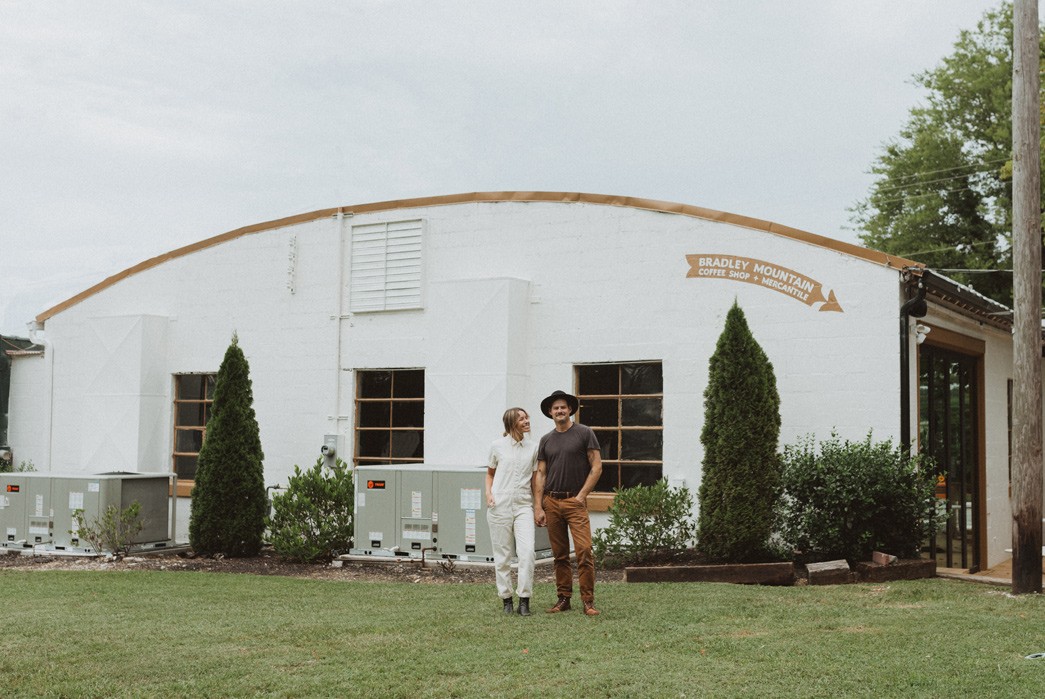
WR: So, is Bradley Mountain a real place, or?
TA: Bradley Mountain is just a place I made up. It’s basically there to inspire people to travel and go somewhere, rather than the name revolving around us and what we make. The whole point is the adventure is in yourself; we’re just giving you tools to express that adventure. So the whole idea is like, “Go to Bradley Mountain,” whether it’s a country on your bucket list or a totally undiscovered place.
Bradford is a family name, so I kind of just pulled from that. But that’s what that means.
WR: You make starting your own brand and business sound easy. Walk me through the specifics—how did you do it?
TA: So growing the project, you know, from a hobby into a business was extremely difficult. I didn’t have any business experience when I started. I didn’t have any mentors in the space, either. But, I did have my family. My dad runs a small business making handmade puppets, which I worked for growing up. That’s the business I grew up around. So, the thought of taking something from, you know, like a bolt of fabric to a consumer product wasn’t a foreign concept. That piece made sense to me. But really, the fact that I have no formal training in sewing, patternmaking, or leatherworking, I think really helped me because I was able to come from a really naive and raw perspective.
I use a lot of rectangular patterns, very simple patterns that produce pretty much zero waste in terms of canvas. And they’re fairly easy to train and teach. And so basically, I started grabbing friends of mine to come on board and we eventually figured it out together. That’s sort of how I began to scale the shop, adding one friend at a time, and then slowly adding guys onto that.
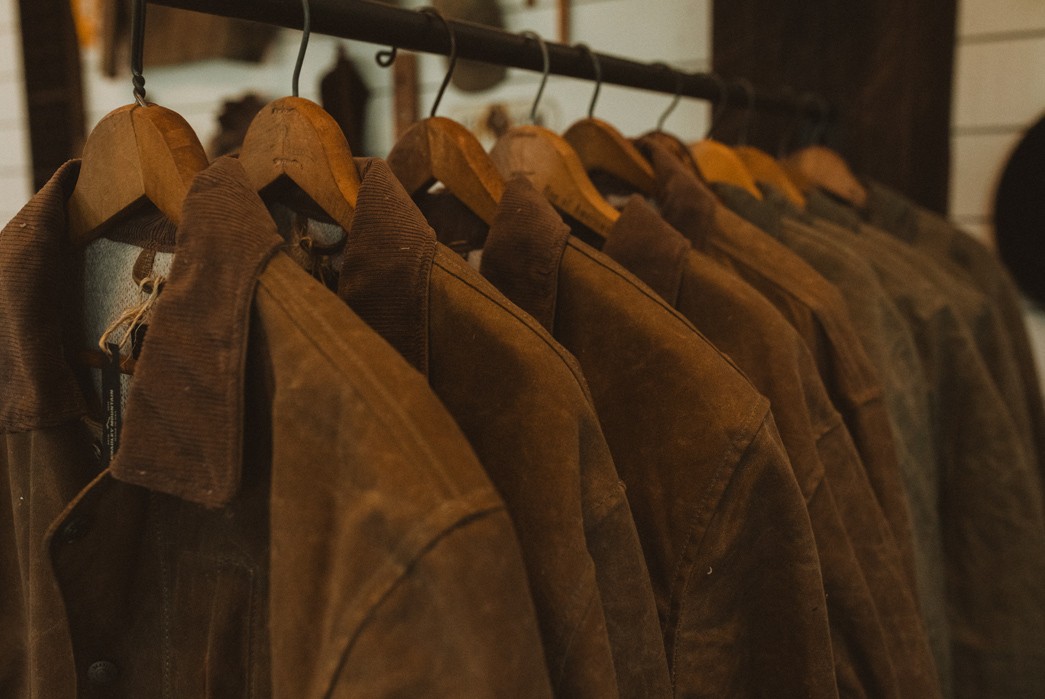
WR: What advice would current Tyler give to past Tyler if you had to do it all again?
TA: If I were to give advice to myself starting out, I think it would be to learn as much as possible on the finance side; the business side. Also, pay close attention to what’s working. Stay true to your genuine place of inspiration. Most of our most popular designs were the first designs we ever made, whether it was the first jacket I designed, the first bag I designed; or even the first candle. Almost every single one of our firsts are our best sellers. I think that just speaks to accessing this point of inspiration and trying to create it from my mind, rather than looking at blogs and trying to figure out what other people are doing. It’s just come from a genuine idea that’s been put on paper.
As I’ve grown, I’ve tried to harness that, that kind of precious point of inspiration, because it’s so easy to look at your competition or, you know, what’s going on around you to influence your designs.
WR: You touched on inspiration—where do you get your inspiration from for Bradley Mountain?
TA: Yeah, I actually didn’t know much about the old outdoor hunting world I find myself a part of now. You know, brands like Filson and British brands like Barbour weren’t on my radar back when I started. I didn’t grow up around that. But when I came into contact with wax canvas for the first time, it felt like this totally undiscovered thing, at least in my common world. And so it felt like a lot of these ideas were coming from myself. Obviously, everything comes from somewhere. I think there’s a kind of throwback to old Boy Scout, World War II inspiration. I love old military gear mixed with Swiss and Swedish backpacker style, which, I guess crosses over into the whole bushwhacker EDC world. But, at the time, I really didn’t know all the nuances of it. And it’s really cool to create something that you just love and then find yourself, kind of. You know, connecting with different communities and people that really believe in it.
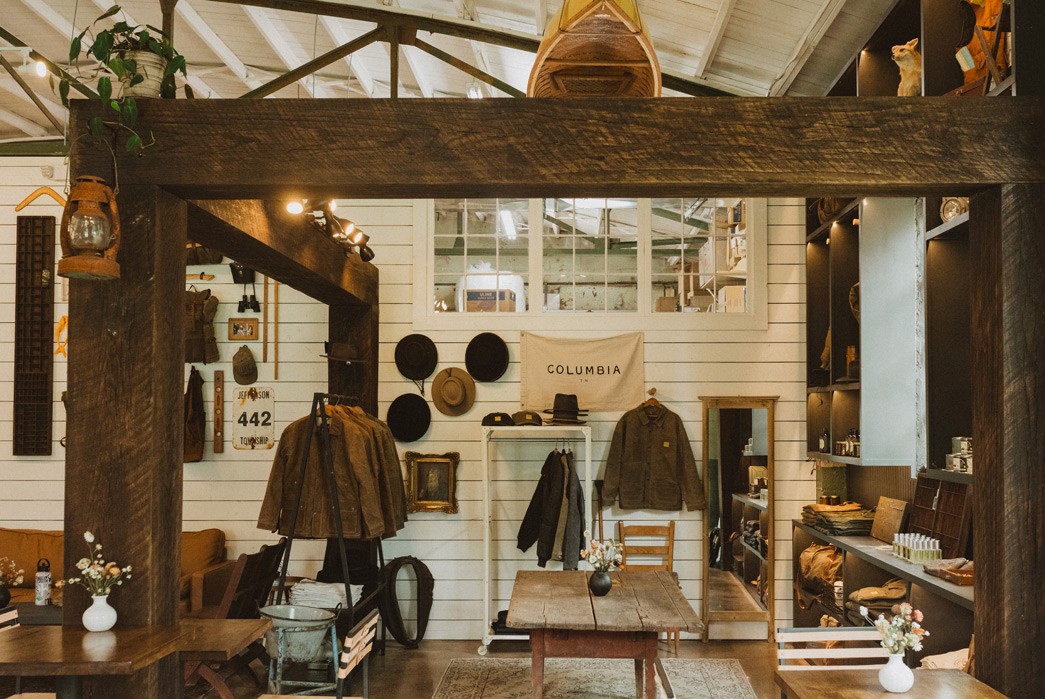
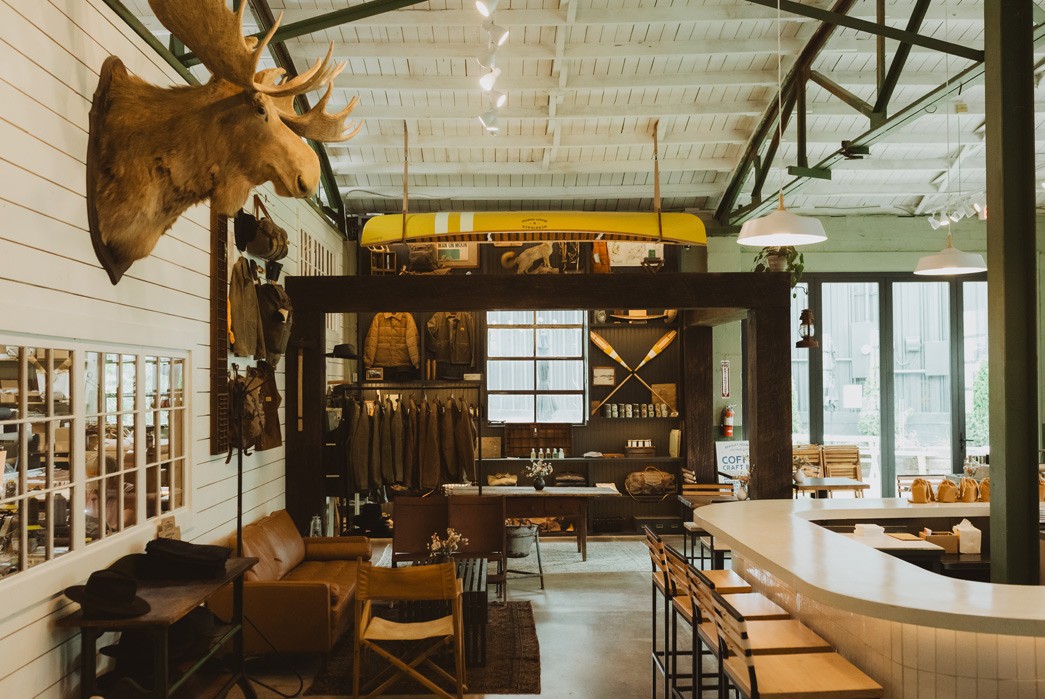
WR: You’re definitely nailing “boy scout core”, for sure. You’ve talked about zero waste, which I think is a really important point, especially in the age of consumerism and fast fashion. Can you talk a bit about Bradley Mountain’s approach to sustainability?
TA: Yes, absolutely. I mean, when I first purchased a roll of canvas, it was like $30 a yard. And it was honestly more than I could afford at the time. I also bought scraps of leather from the local leather shop. They sold it by the pound. I bought two yards of canvas from Fairfield Textile, which is the same textile manufacturer we use today. They’re American. One of the only American waxing companies, in fact.
And so, because the materials were so precious to me, I used every inch of the first materials I purchased to create the first Wilder backpack. That approach basically allowed me to maximize the use of the canvas on the bag and give myself the most function. And so I think by design, everything has been designed that way by accident, just out of the scarcity of trying to start a small business.
In the modern-day Bradley Mountain world, we design very specifically. I.e. how can we use this end cut from this one pattern to create a zip pouch or something? So, zero waste is really important. All the materials we use are of really high quality, so we don’t want to use more than we need. Also, we put as much as we can onto the bags to give people the highest function and durability possible.
Speaking of sustainability, I believe a lot in buying something that will last you a lifetime. A lot of people say that, but there’s still quite a gray market in terms of what and how people are actually providing that service. Not all waxed jackets are made the same, for example. We repair ours for free for life. That’s something we’re going to stick to as long as we’re around. We repair bags every day here, as well as jackets. It’s really cool to see people send them back. One guy was attacked by a bear and had his bag ripped in half, so we put it back together. It’s really cool to hear our customers’ stories and see the patina that’s going on out there.

Bradley Mountain 1-0th Anniversary Wilder Backpack (left) and Biographer Backpack (right), available for $675 & $345 respectively from Bradley Mountain.
WR: I love how resourceful you are with your materials. It feels like you’re not skimping on anything. For example, the thick leather name badges on your bags. Can you talk a bit about that?
TA: That back panel actually got inspired by a vintage Boy Scout backpack. The Boy Scouts would write their name in felt tip or marker on it. I just thought that would be a really fun, personalized addition to our bags.
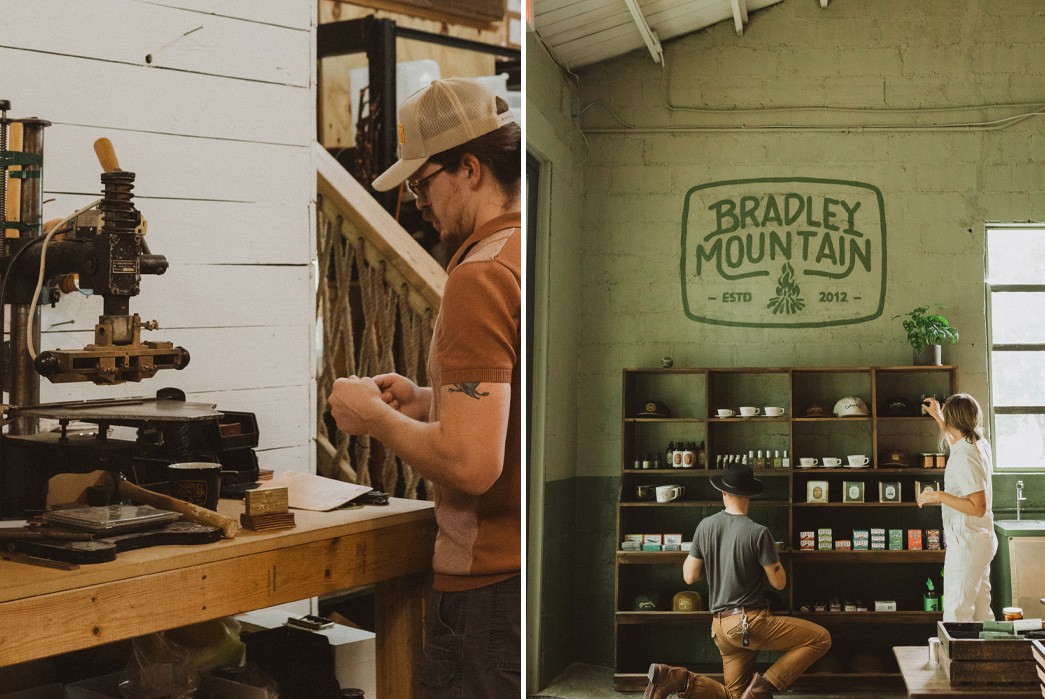
WR: I guess it’s the equivalent of a chain stitch runoff on a vintage piece of Japanese repro or something. I like it a lot. It’s the small things.
You guys are pretty relentless about making stuff in the USA, which I appreciate. Then there’s the handmade element as well. As you grow and scale, the commercial aspect must start to get a little more attractive. How are you staying grounded and true to your roots?
TA: When I got started, there honestly wasn’t a lot of wax canvas and leather goods coming from overseas, at least not in the utilitarian space. So it really started in the US, because I wanted to make stuff for myself. I’ve noticed that over the past, you know, five or so years, some of the really staple core brands in this space have started taking things overseas for reasons of their own. You can get things made really well overseas, I’m not going to lie. But, for me, I wanted to stay close to the making process. There was a time when I had sales reps trying to push us into some big-name stores and whatnot, but, honestly, it just felt like the company was going to get away from me. It felt like I was about to get myself into a place where I wasn’t designing from inspiration, and I was designing for somebody else instead. And some of that would have probably looked like taking it overseas. So, I made the really conscious choice to scale back and hold on to the thing that I care most about, which is product design and getting to work with my friends.
We actually just recently packed up and moved from California to Tennessee, where we opened up a retail store and coffee shop combo. Our workshop is here in the same space. For me, it’s just this little utopia. We get to walk into work together, collaborate, and make things. Our most recent bag was designed by my production manager and photographer. We get to do it together. So, the whole “made in USA” thing, yes, it has to do with quality, but it’s also a lifestyle choice. We’re all really makers; we’re not an e-commerce team, you know. We’re makers trying to figure out e-commerce as we go.
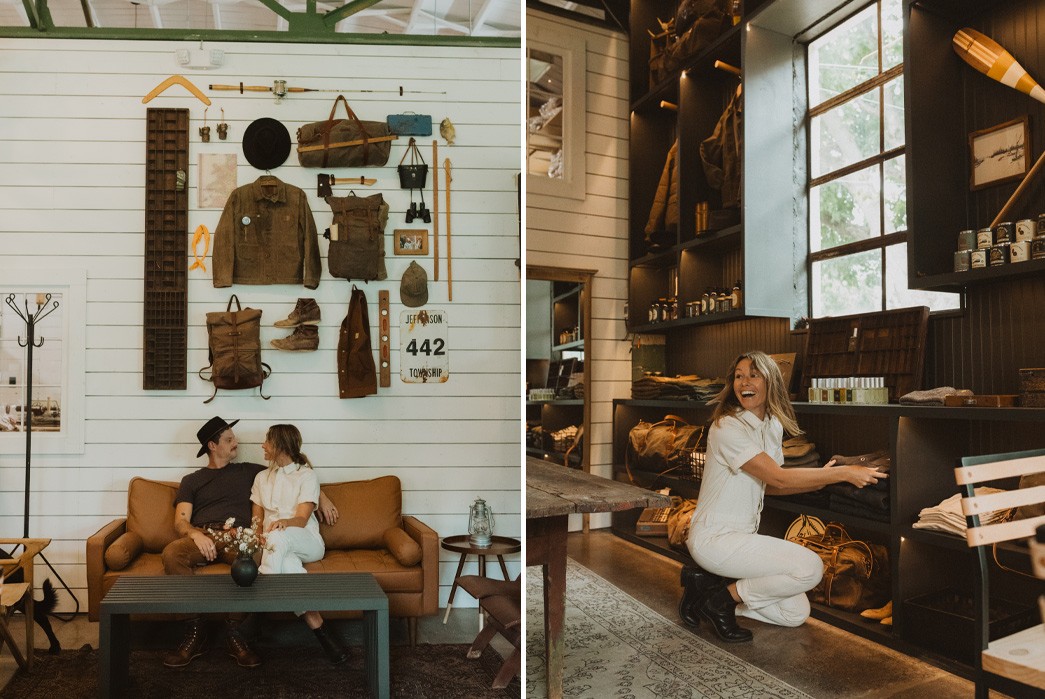
WR: I think that’s the best way around to be. Talk to me about Tennessee. Why? Do you have ties there? Is it cheaper? Is it more your vibe with the whole waxed canvas thing?
TA: There are a lot of reasons. One was just a family choice, being able to slow down a little bit. The West Coast has grown a lot. It’s a beautiful place, but it’s also very intense. And there’s a lot of pressure. Honestly, the local government there isn’t making it very easy to run a business. Tennessee has a lot to offer in that regard. It’s a lot more friendly to small businesses. People here really care about American-made goods. I mean, they do in California as well, they’re just harder to find. You get a lot of denim-heads in California. Guys and girls that really, really care. But, here I’d say that the general population just kind of gets it and believes in it. There’s a lot of farming here—a lot of family-raised cattle and beef. I’m trying to figure out a way to get into the local leather supply as well. Ultimately, it wasn’t a political move for us. A lot of people would probably move for that reason alone. For us, it’s just more of a lifestyle choice; a place where we could open this really nice retail space and actually afford to do it ourselves. My wife and I own the company. We don’t have any partners or investors. So, yeah, that’s something we wanted to maintain.
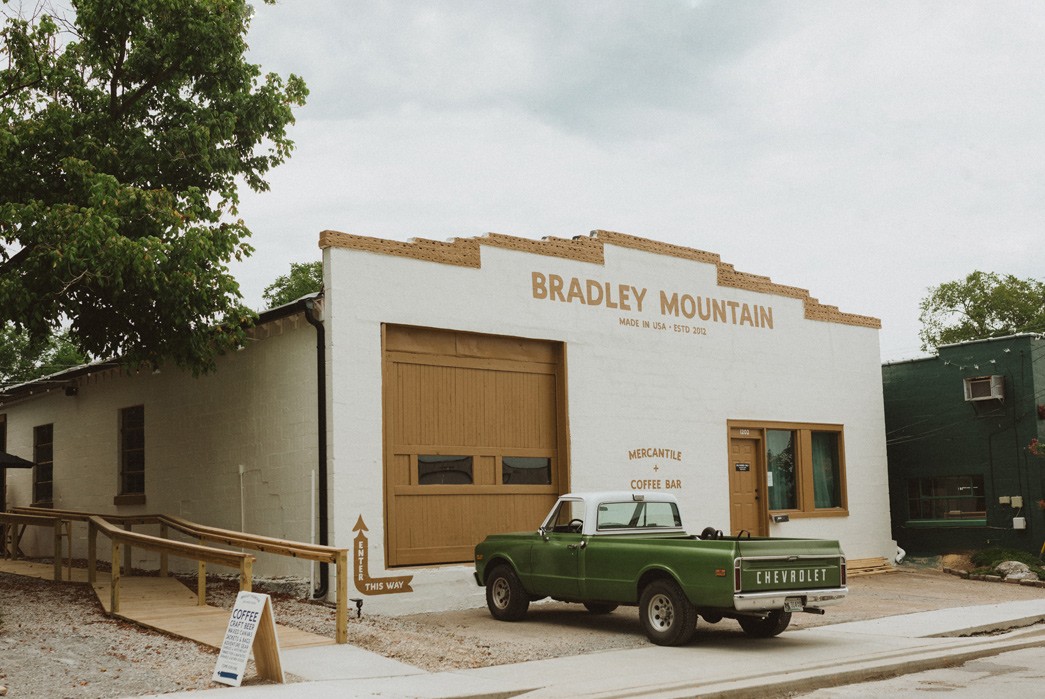
WR: That makes sense. So, how many people work for Bradley Mountain right now?
TA: I’d say we have about 18 employees now.
WR: And all of them moved from where you were in Cali to Tennessee, or?
TA: No, actually we totally rebooted the team when we moved. Everyone on our old team left in a good way. It wasn’t like we had to do mass layoffs or anything like that. It was kind of a “COVID rebirth” if that makes sense.
WR: How in the world have you managed to broaden your product portfolio so quickly with 18 people? You’ve got bags, duffles, totes, jackets, candles, body wash, coffee, like, what?
TA: I just love manufacturing. I love making. It gives people jobs. It gives people an
opportunity to learn and create and to me, it’s the only power we have against the Amazons of the world and the powers that be. I mean, we do a lot but there’s some things like pocket knives and stuff that that we don’t make obviously. But yeah, I mean, I just get restless, and it’s either I’m going to start 20 businesses or I’m going to try to fit it all into one cool brand. I just love designing and creating. And what’s the point of running your own business if you can’t have fun?
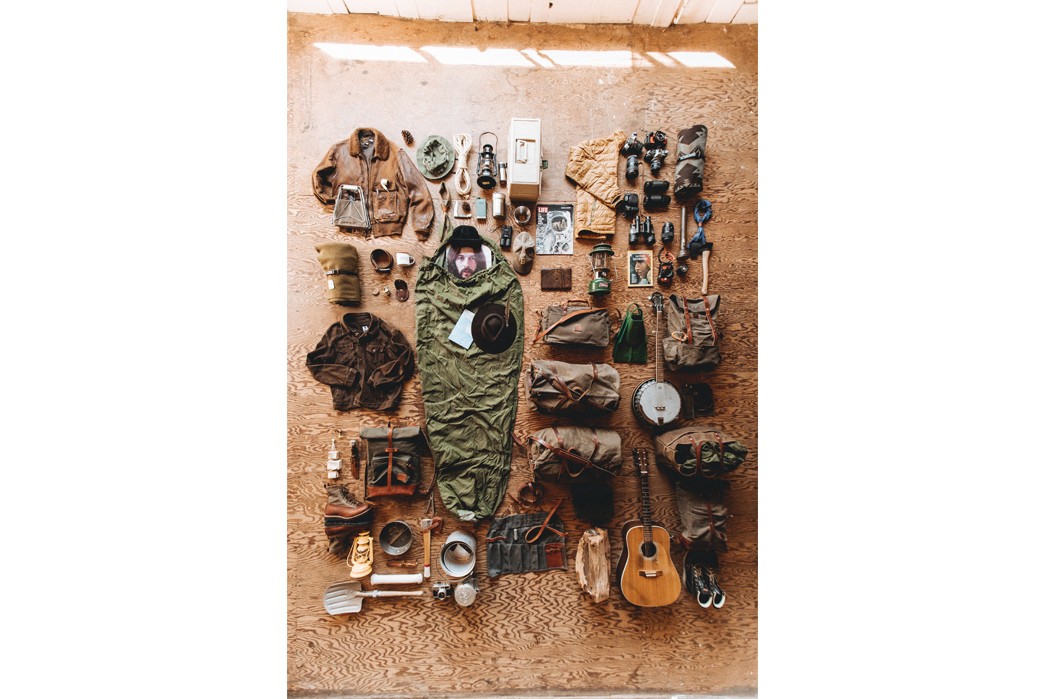
WR: So, what’s next for you, Tyler, and Bradley Mountain?
TA: I think that there’s definitely been a big awakening in terms of the world being aware of American-made goods, just like Japanese and English-made goods. There’s a lot of hubs in the world that were at one time producing the best quality stuff. Some of those places have tapered off, and America is one of them. In the ‘80s and ‘90s, we just started outsourcing everything. And so, as this “made in the USA” trend has exploded, I think it’s ironic because now we’re starting to put things overseas again. But it’s all under the guise and the image of “American-made”, even though the goods may not be totally made here. Brands might not be lying about it but they’re definitely waving the flag if that makes sense.
We’re in a really weird space right now. I think that it’ll be a really interesting journey as factories decide to close or stay open like the Cone Mills factory, for example. There are just really, really few people to work with. As those things play out, it’ll be a journey for us in terms of knowing and deciding how we want to either bring things in-house, innovate, or help the industry to innovate to keep it alive. We want to stay committed to making things in the USA, and it’ll be an evolving journey in terms of what’s next. One thing we really care about is hospitality and giving people experiences. So, I think beyond product design, it would be amazing to create amazing spaces for communities. My wife and I dream of opening a Bradley Mountain hotel someday and having a shop and a restaurant there. We’ve even joked about having, like, a really cool RV park and camping site. We’re not working on that stuff right now, but those would probably be the next big moves. For now, we’re focused on honing our team and bringing value to the people that work for us. That’s really important. That’s an ongoing journey, for sure.
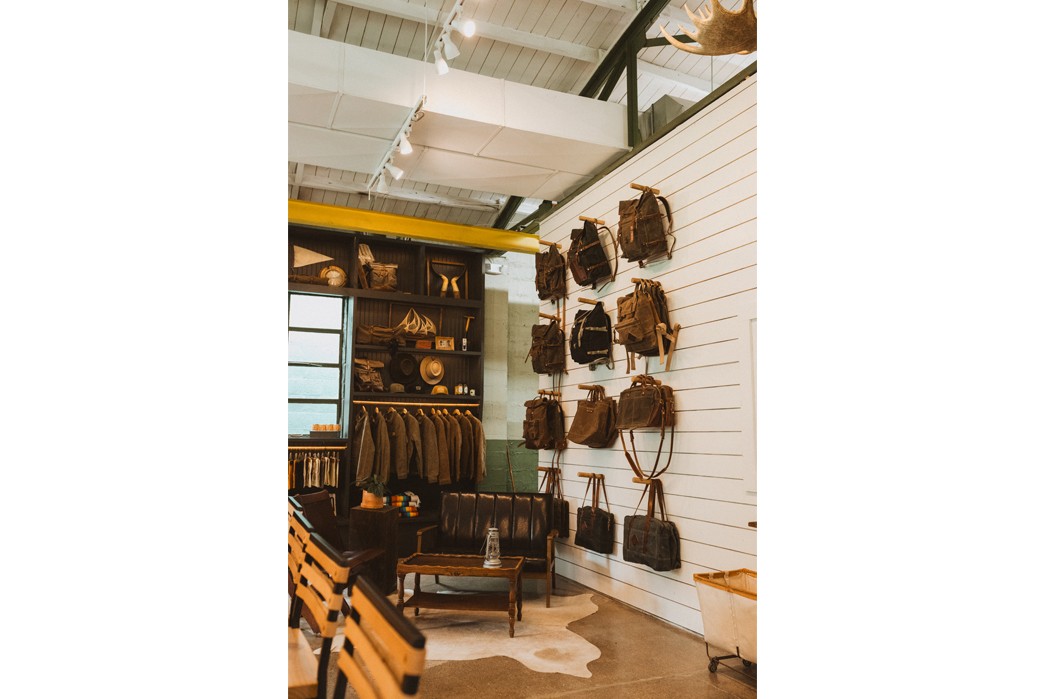
Lightning round
Fashion trend you can’t wait to see the back of?
Uh, the “chest purse” [he means “manbag”].
Cuffed or hemmed?
I go cuffed.
Favorite brand right now?
RRL.
Favorite clothing/goods store?
I can’t go RRL again, so I’ll go Manready Mercantile.
Canvas or leather?
Canvas.
Favorite hiking spot or trail?
Right now it’s my new mountain range, the Great Smoky Mountains. I’m just getting to exploring them.
You can shop Bradley Mountain’s full range of goods over on their webstore, and follow them on IG @bradleymountain
